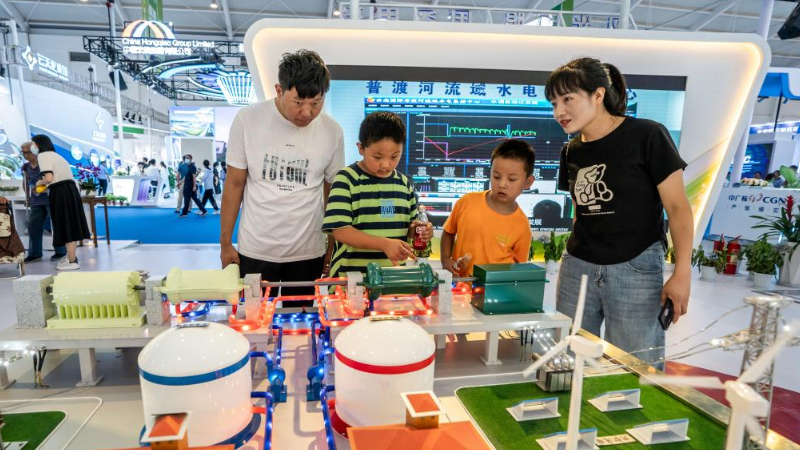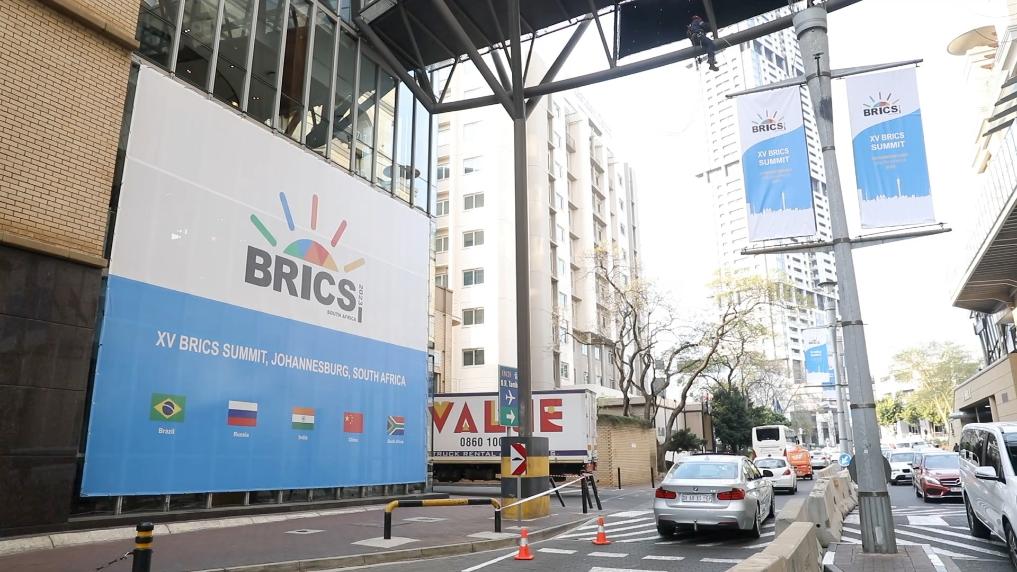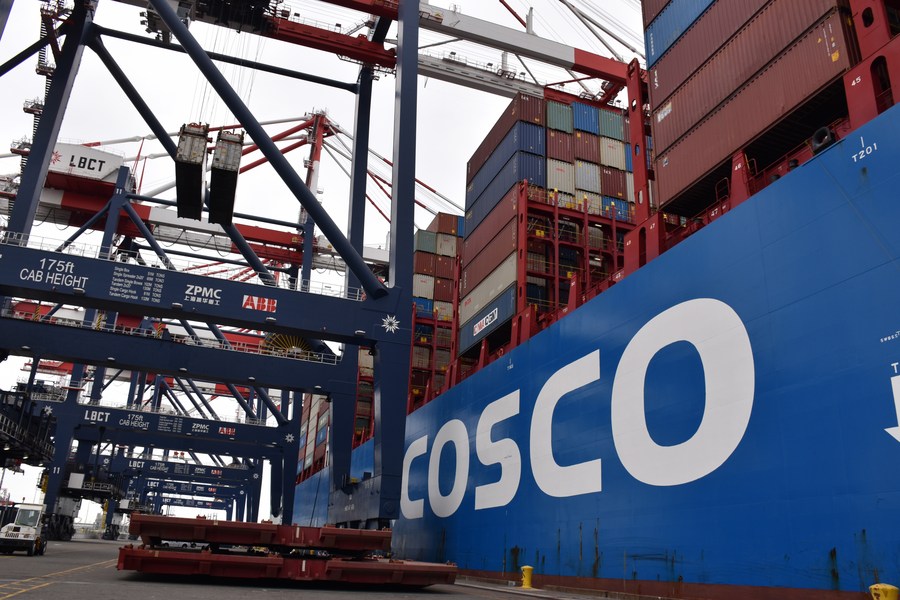
A container ship of China's COSCO Shipping docks at a container terminal of the Port of Long Beach in California, the United States, Aug. 20, 2021. (Xinhua/Gao Shan)
"Everyone, from corporations to consumers, watches out to spend their money now," says Albert de Mosropian.
LAS VEGAS, the United States, Aug. 25 (Xinhua) -- The number of exhibitors at the Las Vegas ASD Market Week is similar to that of the past, but many wholesalers attending the trade show said they feel depressed and helpless as traffic flow and transaction activity have dropped significantly this year.
The so-called decoupling, designed and touted by politicians, has led to tremendous economic costs, specially in an era when the economy overall is going downward, they said.
The ASD (Affordable Shopping Destination) trade week, held twice a year in Las Vegas, is one of the largest and oldest wholesale trade fairs in the United States. All of the 1,800 exhibitors this fall are small and medium-sized importers, exporters and wholesalers.
The exhibition lasts from Sunday to Wednesday, covering 19 categories and millions of household consumer goods. Most of the products come from the easiest manufacturing industries in the eyes of some politicians, and their supply chains are regarded as the perfect targets of decoupling or industrial chain transfer. However, business insiders said things are not as simple as what some lawmakers think.
Omaha Distributing Co., Inc. from Nebraska, which specializes in various household small tools, has participated in ASD week for more than 40 years. The company's sales manager, Tinny Sibbling, told Xinhua that all its products are still imported from China because they have the best performance.
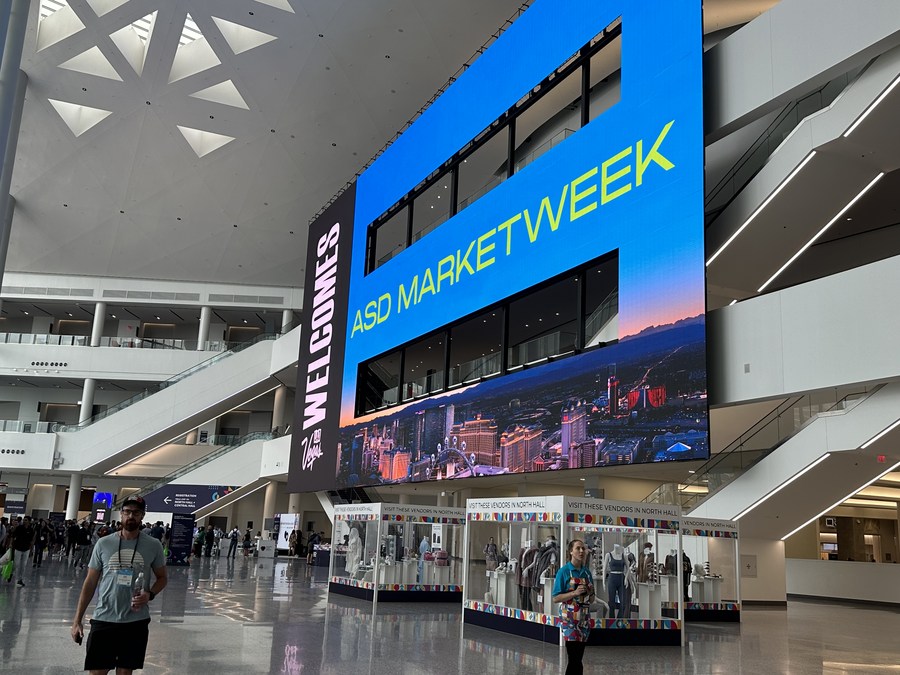
This photo taken on Aug. 20, 2023 shows a scene of the Las Vegas ASD Market Week in Las Vegas, the United States. (Xinhua/Huang Heng)
Sibbling said he has no details about such products' purchasing cost since it is the job of the company's import department, but as a sales manager, he finds that the products are very popular among local customers.
However, tariffs have been a negative factor, he said, warning that tariffs cast more shadow on business since they are borne by American consumers while inflation has weakened their consumption power.
According to a blog posted by the Cato Institute in June, 70 percent of all U.S. imports from China have an average tariff of 20 percent, as against about 3 percent before the trade war initiated by the former U.S. administration.
"The result is predictably bad," the blog said. "Tariffs cost the average American household 830 U.S. dollars a year when direct costs and lost efficiency are taken into account."
Those losses may be ignored by consumers when the economy is booming, but when the economy is bad and affordable price jumps on the top of consumers' shopping list, it will directly affect the entire business chain, from upstream raw material suppliers to street retailers.
Sibbling estimated that 20 percent fewer buyers showed up at the show comparing to the previous fall.
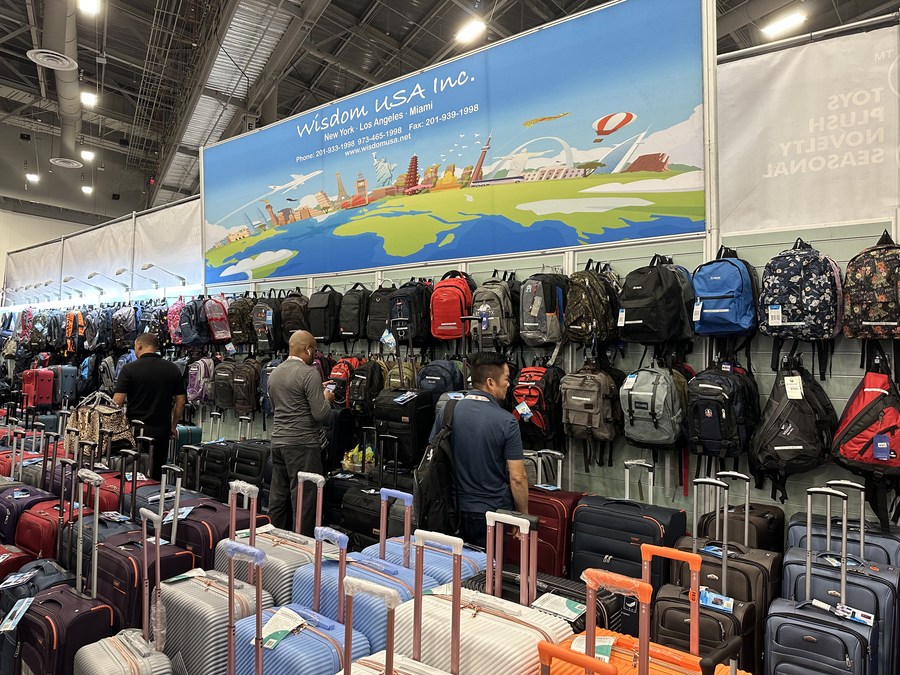
This photo taken on Aug. 21, 2023 shows a booth of a luggage company during the Las Vegas ASD Market Week in Las Vegas, the United States. (Xinhua/Huang Heng)
David Luo, who runs a luggage wholesale business in Los Angeles, put similar figures.
Luo, who inherited the business from his father, pointed out that in this segmented industry, the industrial chain seems to be shifting, but the actual transfer is more complex.
Under pressure from Washington, some orders from large U.S. department stores have to be moved outside of China, he said, while small and medium-sized wholesalers still choose China because the forced transfer has lengthened the production chain, which results in a longer processing time for a single batch of goods and an increase in product manufacturing costs.
Large department stores have to increase the quantity of a single order to reduce the risk of supply terminals and reduce costs, which in the meantime increases inventory pressure and reduces the choice of consumers, Luo explained, adding it is impossible for small and medium-sized wholesalers and retailers to do so.
His remarks are backed by data from the China Chamber of Commerce for Import and Export of Light Industrial Products and Arts-Crafts (CCCLA).
According to the data CCCLA provided to Xinhua during the show, from January to July this year, the export volume of China's luggage industry to the United States was 3.55 billion dollars, a year-on-year decrease of 3.3 percent, and the export volume to the EU market decreased 5.0 percent year on year. However, exports to the market of the Association of Southeast Asian Nations saw a significant year-on-year increase of 25 percent, to 3.41 billion dollars.
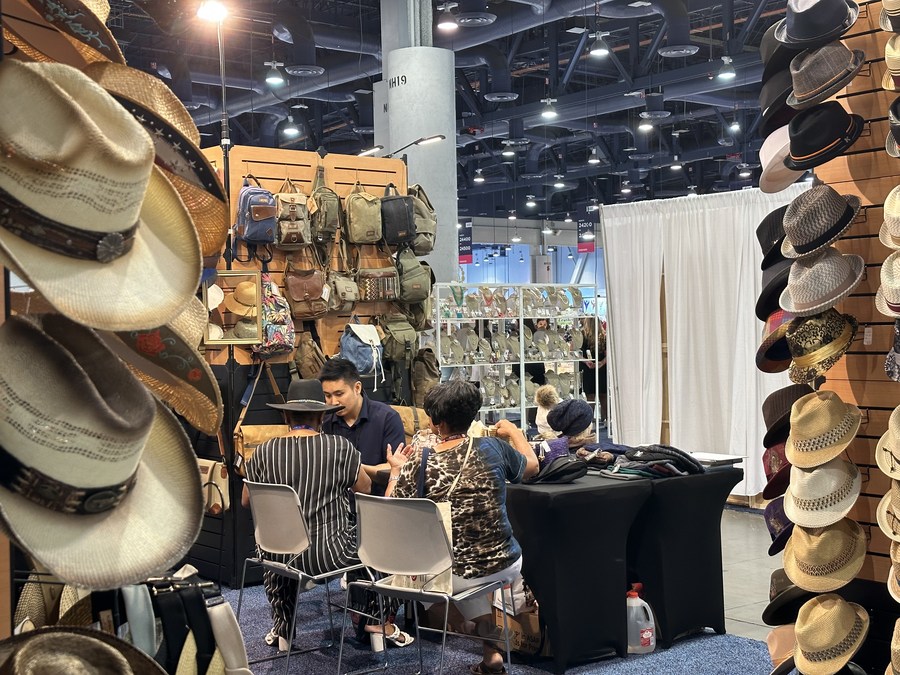
People negotiate at a booth during the Las Vegas ASD Market Week in Las Vegas, the United States, Aug. 20, 2023. (Xinhua/Huang Heng)
Hussain Rahman, a luggage wholesaler from Canada, told Xinhua that the current downturn in this industry partly stems from the chaos caused by the disruption of supply chain, but more importantly, the overall economic downturn.
"No travel, no one needs a suitcase, right?" Rahman said.
Among the main drivers of global economic downturn, reckless decoupling is indispensable. If the world economy were separated into disparate economic blocs -- one led by the United States and one led by China -- the global economy would suffer tremendously, according to a study released earlier this year by the International Monetary Fund (IMF) on the economic impact of such a system.
On the basis of the IMF study, economist Bert Hofman, director and professor at the East Asian Institute of the National University of Singapore, drew the conclusion that a fragmented world would be much poorer than a globalized world and the cost of decoupling could be mush higher than most people's imagination.
Even in the IMF's context, which the models economists use are not very good at projecting the costs of decoupling, "a loss of 7 percent of global GDP is gigantic," he wrote in an article posted online in February.
"Indeed, this is not trivial -- it's trillions of dollars on a yearly basis," the Cato Institute's blog read.

People are seen with the U.S. Capitol building shrouded in haze in the background in Washington, D.C., the United States, on June 29, 2023. (Photo by Aaron Schwartz/Xinhua)
"Washington politicians, journalists and think tankers wouldn't bear the brunt of such a policy; as the IMF report notes, the unraveling of trade links would most adversely impact low-income countries and less well-off consumers in advanced economies."
Wholesalers and retailers participating in the ASD trade show precisely face such consumers.
"Everyone, from corporations to consumers, watches out to spend their money now," said Albert de Mosropian, owner of Angles Craft USA INC, which specializes in home decor. "Because of inflation, everything goes up in price and you have to pay for the food for the kids at home before you buy things that are not essential."
Mosropian, who has been in the industry for 35 years, expressed the belief that after the former effective supply chain is disrupted, purchasers may go to South Africa or India besides Yiwu (a Chinese city dubbed as "the world's largest small commodities wholesale market), but the cost of this process is very high, especially for small and medium businesses and low-level consumers in the United States.
In this regard, the CCCLA said in a written interview with Xinhua that China expects the United States to "maintain the international economic and trade order, guarantee the security and stability of the global industrial chain and supply chain, promote global economic and trade exchanges and cooperation, and create good development prospects for China-U.S. economic and trade cooperation." ■



